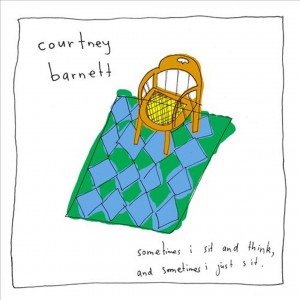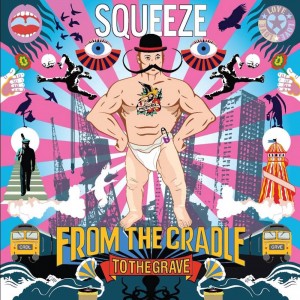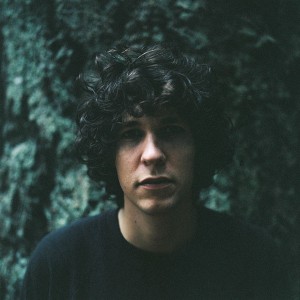It’s December, a time to reflect on the greatest movies, music, comics, etc. of the last twelve months. And while we try to keep up with the best of everything as they’re released, occasionally something sneaks by us. With the Rest of 2015, we hope to highlight the best materials we missed out on reviewing earlier this year.
Not to get all confrontational right out of the gate, but fuck your “2015 was a bad year for music,” if you’ve come here with that sort of mindset. Old family secret: no year in which music exists is truly “a bad year for music,” and that’s not even counting the miasma of things that happened this year. We finally got some headway on the direction of streaming in music (thanks, Taylor!); Apple Music was released (and I stopped using it not long after my free trial went kaput); Adele broke records few expected could be shattered; we had clear winter and spring jams but no clear Song of the Summer; and Drake danced like your God damn uncle.
There were around 20 collections of songs I found good or great in 2015. Carly Rae Jepsen’s E•MO•TION set dizzying new heights for modern pop (even if it didn’t sell worth a damn); perennial The Damnwells recorded a lively, roots-y record with all four original members; and upstarts (CHVRCHES, Grimes) and old hearts (Willie Nelson & Merle Haggard, Janet Jackson) alike delivered pretty incredible albums. But there are three releases in particular that I, in my official capacity as Mike Duquette, A Guy Who Likes Pop Songcraft and Past Culture, feel necessary to outline as a way of letting you know You Might Have Missed This, Do Not Do That.
For The Progressive Millennial Slacker: Courtney Barnett, Sometimes I Sit and Think, and Sometimes I Just Sit
The first time I talked about Australian singer-songwriter Courtney Barnett on Deadshirt, it was part of a site-wide joke about BB-8, the lovable new droid from Star Wars: The Force Awakens. I had to shoehorn references to the rolling robot into a fake review of Barnett’s newish LP, an act I can now confess I thought was incredibly stupid. I no longer have such obligations, so it’s time to get serious.
Courtney Barnett, a 28-year-old left-handed lesbian guitarist from Sydney with a penchant for surreal, conversational lyrics, is fucking spectacular. Much of the world may have scratched their head when her name ended up on the list of nominees for the Best New Artist Grammy Award; I was thrilled to see it there. Sometimes I Just Sit and Think, and Sometimes I Just Sit is an album that hasn’t left me since it dropped in March, and I’d be crazy not to tell you that if you’re under 30 and doing your best at playing grown-up, you’ll want her as your soundtrack.
As the best Down Under-adjacent musical export since Crowded House, Barnett sonically builds guitar-heavy tunes that crunch and swirl like the unholy spawn of Nirvana and Wilco. But it’s the lyrics she laconically sings over those killer tracks that cut the young and the aimless to the core. Opening track “Elevator Operator,” a yarn about a young corporate drone considering his future from the unsteady top of a building, speaks volumes about The Way We Young People Live Now and Whether It Works:
He said “I think you’re projecting the way that you’re feeling
I’m not suicidal, just idling insignificantly
I come up here for perception and clarity
I like to imagine I’m playing SimCity
All the people look like ants from up here
And the wind’s the only traffic you can hear”
Elsewhere, on the Dylanesque “Pedestrian At Best” (“I’m a fake / I’m a phony / I’m awake / I’m alone / I’m homely / I’m a Scorpio”) and the haunting, beautiful “Depreston,” about a couple moving to the suburbs because that seems to be the right thing to do, Barnett further establishes herself as one of the most vital voices of rock and roll today: sardonic, anxious, eager to share and female (Liz Phair would be proud). Her songs and her vision will not get out of my way, and I’m not sure I want them to. Sometimes I Sit and Think, and Sometimes I Just Sit is exactly the kind of record we need in a year like 2015.
For the Pop Elder Statesmen: Squeeze, Cradle to the Grave
Believe me when I say that, despite the dearth of chart positions to back it up, Squeeze were to the ’80s what The Beatles were to the ’60s. Anchored by the dynamic duo of vocalist/guitarist/lyricist Chris Difford and vocalist/guitarist/songwriter Glenn Tilbrook, Squeeze latched on to New Wave, college rock, and even vaguely Britpop styles through the ’70s, ’80s and ’90s while never enjoying a true hit here (despite “Tempted” belatedly becoming a staple of ’80s radio revival). But really, it was all about the songs: four-minute little pseudo-dramas about working class woes, too many trips to the pub, lads and birds for everyone.
Eight years after reuniting as a touring act and 17 years after their last studio album, Squeeze recorded a new album for a most peculiar cause: a BBC series of the same name, based on comedy writer Danny Baker’s upbringing in ’70s England. I’ve never seen the show and probably never will, but it offers the group a chance to craft catchy story-pop, and they do not disappoint. Often times, a band will reunite and offer a new record that’s pleasant at best; here, Squeeze dramatically remind you how good they are at what they do. Songs like the disco-ish family drama of “Nirvana,” the pure summer-pop bliss of “Happy Days,” or the pubescent yarns of “Only 15” and “Haywire” (the latter one of the best, funniest songs about being horny) are as catchy as the best songs in their discography, and it’s a real pleasure to know that for some bands, it doesn’t end after a certain age or decade.
For the Old Soul Who’s Also a Young Buck: Tobias Jesso, Jr., Goon
You might not know Tobias Jesso, Jr.’s name. You more than likely know his work, because he’s a songwriting partner to the biggest pop star in the world. Jesso’s name graces two big songwriting credits alongside Adele–her own rising single “When We Were Young” off 25 and “Alive,” the powerful Adele outtake co-written with Sia and used as the first single for her new album due in January. Only part of what makes Jesso tick is on display in those songs, slightly overshadowed by big voices and production; his gifts are better served when they’re presented with the kind of maximalism that fits him best.
Goon, Jesso’s debut LP, sounds wildly out of time, like Harry Nilsson never died or blew his voice out after drinking and getting wild with John Lennon. It has haunting string and horn charts that are so good they would make Paul Buckmaster angry, and a focused style aided by straightforward producers like JR White, Ariel Rechtshaid, and The Black Keys’ Patrick Carney at the helm. The record’s first half, particularly the triple play of “How Could You Babe,” “Without You” and “Can We Still Be Friends,” is exactly the kind of new/old shit music obsessives like me crave. It’s gorgeous, despite its often wounded lyrics, and–not as rare in this instant gratification world, but still appreciated–it resonates. 2015 was a weird year for music, but I’m glad we have something as pretty as Goon.
Check back throughout December for more Rest Of 2015, chronicling the best releases we missed out on reviewing earlier this year.



